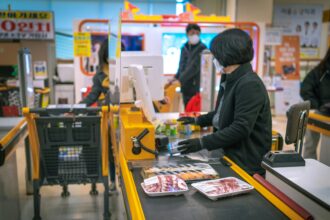Experiencing Wildlife Beyond Sight
Silhouettes flit across a glassy lake beneath a quiet morning sky. High-pitched cries from avocets pierce the air as they defend their eggs from a circling crow. A barnacle goose barks from overhead, its call sharp and distinct. These moments unfold during a dawn chorus workshop at the Wildfowl and Wetlands Trust (WWT) Slimbridge Centre in Gloucestershire.
There are twelve of us gathered, ears open and hearts hopeful. For me, being partially sighted, birdwatching has always felt elusive. But this experience, focused on birdsong, promises a new way of connecting with nature. The question stirring in me is whether listening can help me see more clearly—through sound.
Nature Unfolding Through Birdsong
Martin, our guide, is our lens into the wetland world. As he identifies birds by both sight and sound, the fog lifts for me. I start to recognize the avocets not just as flitting shadows but as protective parents, weaving a vivid scene in real time. Sound becomes my guide to nature’s drama.
We meander along tree-lined paths and quiet ponds. Martin helps us tune in to each bird’s unique voice—the tinkling of a goldfinch, the mechanical persistence of a reed warbler, the familiar coo of a woodpigeon. When he points out the chiffchaff’s distinct call, its rhythm etches itself in my memory.
A Community of Listeners
Later, I explore with WWT volunteer Dot, who shares a similar passion for sound. I tell her about my difficulties with identifying wildlife, and she encourages me. As we look out from the accessible tower across the Severn Estuary, she tells me that birdsong recognition takes time and practice. I feel empowered to keep listening.

Finding Refuge at Warblers’ Meadow
Geese honk with confidence as they cross our path, goslings waddling behind. Families stroll the centre’s walkways, laughter mingling with birdsong. Slimbridge, founded by Peter Scott in 1946, was the first of WWT’s ten UK sites. It now includes Warblers’ Meadow, a cozy accommodation site featuring five shepherd’s huts.
Our hut, named Reed Warbler, becomes our quiet haven. With earthy tones, a soft double bed, a kitchenette, and a deck perfect for birdwatching, it’s both comforting and grounding. I find myself lingering on that deck each evening, coffee in hand, listening as the birds narrate the landscape.
Tuning Into Nature’s Language
Throughout the weekend, my ears grow sharper. I begin unraveling the tapestry of songs around me. Patterns emerge, cadences become familiar. Nature, once hidden in visual mystery, begins to reveal itself through sound.

Gliding Through Quiet Waters
We take a canoe safari, gliding along quiet channels beneath arching trees. The splash of our paddles, the rustle of reeds, and the occasional quack of a curious duck surround us. We’re clumsy, yes—but joyfully immersed. The experience feels like exploring a secret world.
Exploring Beyond the Wetlands
Slimbridge is also an excellent launchpad for the wider Cotswolds countryside. One evening, we drive to Dursley for a flavorful Nepalese curry. The next day brings us to Uley, where we enjoy a hearty lunch at a charming 17th-century inn before hiking up to Uley Bury, an ancient hillfort.
As we climb, my husband points out roots and rocks to guide me. At one steep patch, I lower myself carefully, crawling to steady footing. I smile, realizing I’ve learned to navigate nature differently—but no less meaningfully.

Finding Stillness Through Sound
Gentle is the word that comes to mind again and again. Despite the activities, I feel soothed by the rhythm of the outdoors. Birdsong becomes my meditation, the breeze my reassurance.
I never felt out of place during the workshop. While others spotted birds I couldn’t see, I didn’t feel I was missing anything. The shared focus on sound brought us together. I began to recognize voices in the wild—individual songs woven into a larger, living composition.
A Deeper Kind of Seeing
One morning, sitting outside our hut, coffee steaming in hand, we listen. “Is that a chiffchaff?” my husband asks. “I think it is,” I reply, amazed at our quiet shared knowledge. Something so small now brings such deep joy.
As a disabled person, it’s easy to feel disconnected from nature. But this trip reminded me of the many pathways into the natural world. For me, sound was the gateway. The scent of wildflowers, the golden sun, and the now-recognizable bird calls all remind me that connection is always possible.






